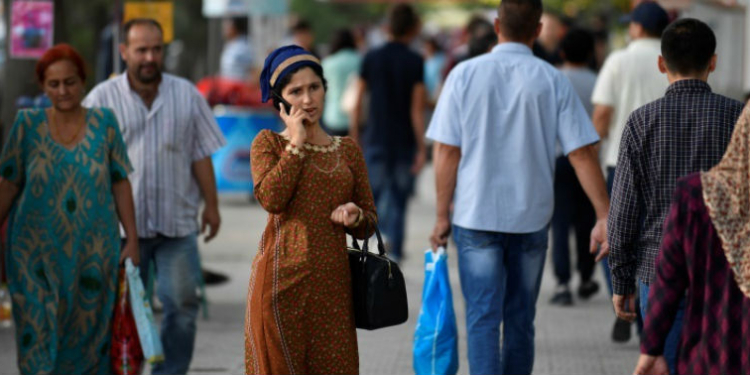tHE financial — The EBRD has seen a welcome upturn in the pace of reform in emerging economies where the Bank invests, four years after reporting that reforms were stalling or even being thrown into reverse.
In its Transition Report 2017-18: Sustaining Growth, the EBRD documents both progress and setbacks in reforms from the past year and sees many remaining challenges.
But commenting on the latest findings, EBRD Chief Economist Sergei Guriev said: “The appetite for reform seems to have returned to the region.”
In 2013, the EBRD issued a stark warning in its report “Stuck in Transition?”, saying that a failure to rekindle the reform process could leave these emerging economies trailing behind their more advanced neighbours for decades to come.
The EBRD responded to this challenge by stepping up its own support for policy reforms in the 38 economies where it invests to promote sustainable open-market economies.
The Bank made clear that engagement in policy reform was a core activity alongside investment and declared that transformative investment projects and a good policy environment were complementary and mutually reinforcing, according to the EBRD.
The EBRD also unveiled a new set of investment criteria for its projects, ensuring that its countries of operations are more competitive, better governed, greener, more inclusive, more resilient and more integrated.
These are the six transition qualities the EBRD believes best help to equip its economies to address the challenges of the 21st century and according to which all of its projects are measured. The new Transition Report highlights a series of key reforms listed according to the six transition qualities.
Reforms aimed at making economies more competitive
In the “competitive” category, the EBRD refers to comprehensive and far-reaching reforms, in particular in Uzbekistan, where the EBRD has begun investing again after a seven-year gap.
Uzbekistan remains low on the list of overall transition successes, but the report points specifically to a move to freely convert the Uzbek currency, a step seen as a litmus test for other reforms.
Similarly, Egypt’s decision to liberalise its exchange rate regime and remove restrictions on cross-border currency transfers is expected to ease the previous concerns of foreign investors.
Several countries have made important progress in privatisation, with projects in Greece covering concessions for Piraeus port, regional airports and a sale of the railway company TrainOSE. Progress has also been seen in Slovenia, with the exception of the sale of its largest bank, NLB, and in Kazakhstan.
However, Ukraine’s privatisation programme has largely stalled, the report says, noting that the country’s largest bank, Privatbank, had had to be nationalised. In Poland, where state control over the economy remains significant, the government has called a halt to the country’s privatisation programme.
Good governance
The EBRD report says that a number of countries in the southern and eastern Mediterranean (SEMED) region have recently embarked on major reforms to public administration and civil services, as part of improvements to governance, with Tunisia streamlining the civil service and Jordan reviewing the management of public investment.
Governance of companies is also being improved and the EBRD is helping to implement reforms to raise standards in state-owned enterprises, in Belarus, for example, in anticipation of the privatisation of two banks, and also at Albania’s main utility firm, KESH.
Green transition
Major progress has been seen right across the region in the area of transition to a green economy, especially as regards the development of renewable energy, often with the support of the EBRD.
The Egyptian government unveiled a strategy formalising its commitment to renewable energy.
The Bank followed up support for these reforms with investment in an Egyptian solar plant which is now the largest in Africa. Progress has also been seen in fossil-fuel dependent Mongolia.
In Serbia, where renewable energy use remains limited, new wind farms have successfully raised the financing they needed following significant policy dialogue involving the EBRD.
Inclusion
The report notes efforts to promote inclusive growth are under way across the region, helping to address major challenges of youth unemployment, especially in SEMED countries and in the Western Balkans, and in the legal and regulatory barriers that prevent women from taking part in labour markets on an equal footing with men, particularly in the SEMED region, Turkey and Central Asia.
Progress includes steps in Kazakhstan to address rules barring women from specific activities, with similar developments also seen in the Kyrgyz Republic. In many parts of the Western Balkans reforms are under way with the aim of improving technical and vocational education and skills.
Resilience
A number of countries have taken important steps to strengthen financial-sector resilience, particularly in the area of non-performing loans (NPLs) which remain a burden on economies in the EBRD regions, especially in Cyprus and Greece, where they still account for nearly half of all loans.
The report points to various important legislative changes in both countries which are now showing some limited success.
Elsewhere in southern and eastern Europe, the EBRD is spearheading work on NPL resolution with a number of partners in the context of the Vienna Initiative, a public-private forum for addressing financial challenges in southern, central and eastern Europe.
NPL ratios are down sharply in Albania, FYR Macedonia, Romania and Serbia. In Moldova, there has been significant progress in addressing vulnerabilities in banks, again with EBRD support.
In Azerbaijan, authorities have made progress with the restructuring of the country’s largest bank, IBA, in preparation for its eventual privatisation.
Integration
The report highlights the importance of integration for EBRD countries of operations, and cites examples of where barriers are gradually being broken down, with particular successes over the past year in southern and eastern Europe and Central Asia.
It notes that Albania, FYR Macedonia, Kosovo and Montenegro have all made major progress in the area of road-building. However, important road projects in Bosnia and Herzegovina have been delayed by failure to amend the law on fuel excise duties that would allow an increase in fuel prices.






























Discussion about this post